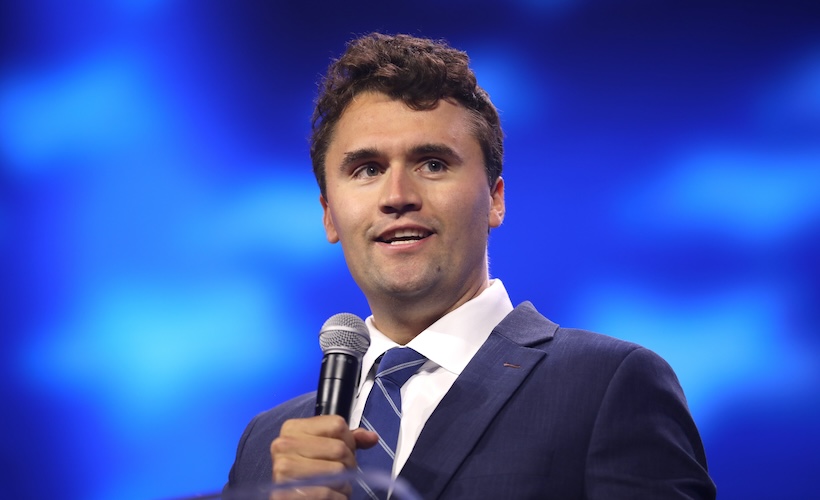I doubt they’ve asked their users if they want this spying tool to hoover up their votes.
Dessalines
- 49 Posts
- 474 Comments
Its because we block lemvotes on this server, because people don’t like their votes being exposed. Every server should do this.
Side note: Zizek supports nearly every US war, and isn’t to be listened to on really any topic.
Your comment moderation history is full of racist “Found the russian!” comments.
If you wield force to protect your class interests (which is inevitable while there is a capitalist and a working class), then there is nothing that prevents the accusation of “authoritarian” against you, regardless of how “decentralized” you create your structures.
Not only will capitalists call you authoritarian for fighting to defend your interests, its extremely common for anarchists to accuse even other anarchist groups of being more “authoritarian” than their own. Its a meaningless term in a world with irreconcilable classes and class conflict.
Its basically just “any leftist I don’t like” at this point. Not really any different from “woke”.
Some arrogant ultralefts use it to distance themselves from existing socialist states / attempts, but nowadays liberals will call even these ultralefts “tankies” for having the temerity to stand against Israel’s genocide. Its just a term to punch left.
I’m simply saying that giving one man absolute power whether it be political
This is standard anti-communist propaganda that unfortunately happens to work on gullible people. It’s related to medieval era witch hunting, where you:
- Create a legend of a supremely evil / nefarious thing, you want to demonize. IE the devil, leaders of revolutionary movements like Robespierre, Stalin, Castro, Mao, Kim Il-Sung, etc.
- Claim that all people are under the dominion of this sole power, which removes their humanity, and ability to reason or think like you do.
- Carry out societal-wide demonization and extermination campaigns, to terrorize any potential sympathizers.
Its a really effective tactic that lets you blame a single entity, encourages conformity and intentional ignorance, lets westerners ignore the functioning democracies of socialist states, and the mass movements that supported these various leaders.
Go back to reddit.
Damn. The pedophile elite were probably workshopping how to take advantage of its success in their campaigns for weeks then.
Capitalist dictatorship (IE liberal / bourgeios “democracy”) by definition is corrupt, in that it is a form of goverment where propertied and rich interests control the country, to the detriment of its exploited workers, who have no say or representation in their government. You’re “free” to yell into the void as long as your complaints don’t affect anything, at which point your movement will be crushed violently.
Its pure projection that liberals call every other form of government that challenges their rule a “dictatorship”, and rely on decades of ingrained anti-communist cold-war propaganda to cement it.
Unfortunately many people accept their propaganda willingly without challenging the cold-war dogma, or looking into how actually or previously existing socialist states had functional, substantive democracy, not the fake “democracy in name only” that liberal countries are selling you.
One of the best US history books. Some links and a one line review:
J. Sakai - Settlers: the Mythology of the White Proletariat, audiobook. The most important US history book. Analyzes the US’s settler-colonialist foundations, its history of genocide, exploitation, social bribery, and the spoils that went to those who willingly absorbed into whiteness and the murican dream (even if they had to kill indians to get some cheap land to do so.) Excellent and unique analysis of FDR’s new deal as the bribery and absorption of the labor movement into the murican dream.
Roxanne Dunbar-Ortiz - Not a nation of immigrants, but a settler colony based on indigenous eviction and genocide.
Like 15 years behind much of the world.

 16·6 days ago
16·6 days agoIts extremely naive to allow the tech arms of the US surveillance state (facebook, google, apple, microsoft) to operate within your country. Every country should have a firewall to protect against this menace, and develop their own homegrown social media.
The US effectively controls (and hoovers up) all the social media and communications of so many more countries than itself.
Damn, went down the twitter drain.
Chomsky after the leaks: “How they manufactured age-of-consent laws to target my good friend jeffrey epstein”
- China’s Social Credit System, and how it isn’t actually Black Mirror
- The US has more CCTV’s per capita than China.
- The US’s credit score system is vastly more influential and detrimental to a majority of its population than China’s social credit system, which largely doesn’t even exist, and where it does exist it is only used to target businesses.
Reminds me of this one, and how in the US you can lose your job in academia (and many other sectors) for supporting the BDS movement to boycott Israeli goods:






You can read the full context of this here.
Votes are transparently federated, but only shown to admins via a few special endpoints, in order to fight one of the biggest spam vectors currently on the fediverse, which is federated downvote spammers. Lemvotes is a single user server / spying tool to circumvent that reasonable expectation of user privacy.